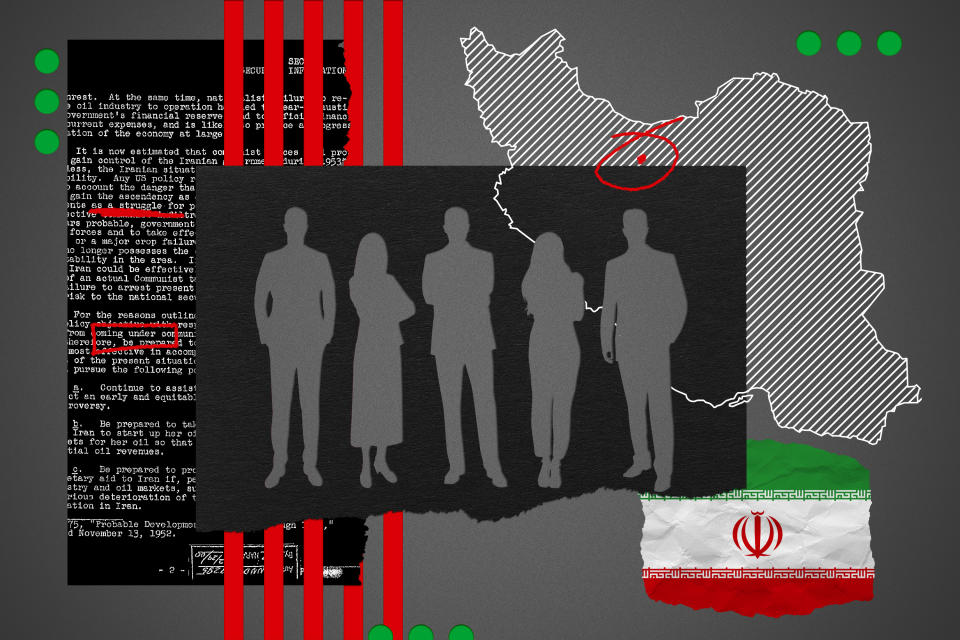“The 360” shows you diverse perspectives on the day’s top stories and debates.
What’s happening
Five Americans who were freed from prisons in Iran as part of a deal brokered by the Biden administration were with friends and family after returning to U.S. soil on Tuesday morning.
In exchange for their release, the United States agreed to unfreeze $6 billion in Iranian funds and to let five Iran nationals out of U.S. prisons. The deal reportedly came after years of negotiations, as part of a broader effort by the Biden administration to ease tensions between the U.S. and Iran. Relations between the two longtime adversaries had become especially hostile after then-President Donald Trump withdrew the U.S. from the Iran nuclear deal in 2018.
Dozens of Americans have been freed from captivity abroad over the past year. The most high-profile case involved WNBA star Brittney Griner, who was held in Russia for nearly 10 months before being exchanged for notorious Russian arms dealer Viktor Bout in another controversial deal brokered by the Biden administration.
There is a long history of U.S. presidents from both parties making concessions to free Americans held captive abroad, often in Iran. Both Trump and his predecessor, Barack Obama, exchanged prisoners with Iran and Taliban forces in Afghanistan. The Iran Hostage Crisis, which played a major role in Ronald Reagan’s victory over Jimmy Carter in the 1980 election, ended when the United States agreed to unfreeze nearly $8 billion in Iranian assets.
Why there’s debate
Republicans have uniformly condemned Biden for making this latest prisoner swap.
They argue that the White House effectively rewarded Iran for taking American citizens hostage with billions of dollars that the country can use to fund terrorism and create havoc in the Middle East. Many make the case that Biden’s willingness to pay such a high price will only give Iran — and other U.S. adversaries — more incentive to hold Americans hostage in the future. Such criticism isn’t exclusive to Biden’s political rivals. Even some people who were themselves previously detained in Iran have made the case that paying for the release of American prisoners makes it more likely that others will be held for ransom.
But supporters of Biden’s deal say $6 billion is a small price to pay to spare Americans from the horrors of captivity in Iran and argue that, while a “no concessions” policy makes for a strong political soundbite, it doesn’t actually accomplish anything in the real world. Others are hopeful that this latest prisoner exchange will help create a diplomatic pathway for the two countries to reach a new agreement to keep Iran from producing a nuclear weapon.
What’s next
There are still dozens of U.S. nationals wrongfully detained in other countries, including two permanent residents who are currently being held in Iran and were not included in the latest deal. The White House has warned Americans not to travel to Iran, stating that they should have “no expectation that their release can be secured” if they are taken captive.
Perspectives
Supporters
Rescuing captured Americans is expensive but worth it
“I believe that getting wrongfully detained Americans home is worth the high price that rogue states such as Iran and Putin’s Russia typically try to exact.” — Peter Bergen, CNN
A good-faith deal with Iran sets the stage for much more important negotiations
“The [agreement] will go well beyond getting imprisoned U.S. citizens out of Iran and releasing frozen Iranian oil funds for humanitarian reasons. It may well be the basis for making sure that Iran will refrain from attacking American troops, endangering international shipping lines and arming Russia for its war in Ukraine. Most importantly, the prisoner swap might be a decisive step for the West in reaching a new informal nuclear limitation agreement with Iran.” — Klaus W. Larres, Conversation
There was no way to free those prisoners without major concessions
“Here’s the bottom line: There are no good deals with Iran, only bad and worse ones.” — Aaron David Miller, Foreign Policy
It’s easy to talk tough when you’re not the one trying to bring Americans home
“Though a no-concessions policy for hostage-taking might be fine as a political position, it further victimizes innocent hostages and risks leaving them to die or languish in foreign prisons for years.” — Jason Rezaian, Washington Post
Critics
Biden has ensured that the price will be even higher next time
“Once again, the administration is jacking up the price that this country’s enemies can demand for the return of Americans they seize.” — Editorial, National Review
The deal will lead to more kidnappings in the future
“If you are an adversary in any way of the United States and you want some sort of concession, what’s going to be the quickest way to do it given the behavior of this Biden administration? Go out, target a dual national, target an American who’s visiting, trump up some phony charges, put them into prison, and then say, ‘The only way you get them back is to unfreeze our assets or give us this concession in these negotiations.’” — Kimberley Strassel, Wall Street Journal
It’s foolish to think Iran will ever be a trustworthy negotiating partner
“This is not a regime it is possible to form a real détente with, and it’s suicidal for the White House to behave as though it is.” — Editorial, New York Post
Biden gave Iran billions that will inevitably be used to harm the U.S. and its allies
“The deal amounts to a ransom payment that will fund the terror-sponsoring regime’s malign activities across the Middle East while doing nothing to curb Iran’s progress toward a nuclear weapon.” — Jonathan Schanzer & Enia Krivine, Washington Examiner
Photo illustration: Aïda Amer for Yahoo News; photos: Getty Images (2)


